In just over two minutes, A Sad Little Fact asks tough questions about the future of honesty and truth in an “alternative facts” world. How can we “save” facts when they are relentlessly under attack? Do facts matter in a world where some politicians and pundits lie so regularly and without any accountability? If facts matter, why, and to whom?
One person, unnamed in this animation, looms large off-screen. Since assuming office, U.S. President Donald Trump has made more than 13,000 false or misleading claims, according to the Washington Post, which has been tracking his lies. In an interview on Fox and Friends in late November, Trump made 18 false claims in a 53-minute interview, according to CNN (that’s one lie every 176 seconds).
As Sacha Baron Cohen told the Anti-Defamation League last month, “There is such a thing as objective truth. Facts do exist.” The Holocaust happened. A man walked on the moon. Twenty-seven children were murdered at Sandy Hook elementary school. Russia hacked the 2016 elections in the United States.
When it comes to human rights, facts can be the difference between life and death. Here are a few recent examples:
- Jamal Khashoggi, a U.S. resident and Washington Postcolumnist who wrote about the Saudi Crown Price, walked into the Saudi Embassy in Ankara for a marriage license and never exited. Instead, he was brutally murdered by Saudi security services.
- Myanmar’s military used Facebook to spread hate and fuel a mass atrocity against the Rohingya people.
- A few U.S. lawmakers peddled the falsehood that the Open Society Foundations paid protestors and migrants. These lies directly inspired violence; pipe bombs were sent to homes of prominent Democrats. Twelve Jews were murdered at a Pittsburgh Synagogue.
Since the current U.S. president took office, fact-checking has exploded. There are now more than 200 fact-checking organizations worldwide. Five years ago, there were 44.
Meanwhile, the president’s term “fake news”—which he uses to dismiss media outlets and stories with which he disagrees—has been embraced by repressive leaders around the world. Authoritarian leaders in a number of countries—including in Cambodia, Syria, and the Philippines—now use the term to target independent journalists and human rights activists. By using this term to reject the truth, these leaders entrench and promote fictitious narratives that serve their interests only.
When President Trump leaves office, this problem won’t leave with him. Restoring a public debate grounded in truth is going to take time. That’s why it is important to tell this story in a way that is provocative for adults, but also can open up a conversation within communities—in an approachable way.
The assault on facts makes addressing transnational problems like income inequality, migration, and climate change difficult and requires a united response from multiple countries.
I am often asked what can be done to push back against those who threaten basic freedoms, and seem intent on destroying the foundations of democracy. Looking for new ways to share facts and help them resonate with a wider audience so they are relatable to everyone is a tremendously important part of a much longer journey. Starting today, we have a new tool—one that can be used by families, teachers, and friends to start a conversation within their schools, neighborhoods, and communities about the importance of facts, and how we need them to uncover and support the truth.
About
Sarah Margon is the director of the foreign policy team at Open Society-U.S.
This article originally appeared on the Open Society Foundations website. It is part of an ongoing series presented in collaboration with the Open Society Foundations. In this series, we shed light on some of the most pressing global challenges and the work that is being done to address them. For more stories like this, go here.










